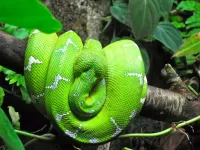Suriname, located in northern South America and sometimes considered part of the Caribbean, is a developing nation reliant on its natural resources, including bauxite, gold, petroleum, and agriculture. It's a member of CARICOM, the UN, the OIC, and the OAS, reflecting its international engagement.
November 1941: US Sends Troops to Suriname
On November 23, 1941, the United States sent 2,000 soldiers to Suriname under an agreement with the Netherlands government-in-exile to protect the bauxite mines for the Allies' war effort.
1942: Dutch Government Reviews Relations with Colonies
In 1942, the Dutch government-in-exile began to review the relations between the Netherlands and its colonies in terms of the post-war period.
1954: Suriname becomes constituent country
In 1954, Suriname became a constituent country of the Kingdom of the Netherlands.
1954: Suriname becomes constituent country of the Kingdom of the Netherlands
In 1954, Suriname became one of the constituent countries of the Kingdom of the Netherlands, alongside the Netherlands Antilles and the Netherlands. The Netherlands retained control of its defense and foreign affairs.
1965: Nike Apache Sounding Rocket Launches
In 1965, the Dutch and Americans used Suriname's Coronie site for multiple Nike Apache sounding rocket launches.
1974: Negotiations for Full Independence Begin
In 1974, the local government of Suriname, led by the National Party of Suriname (NPS), began negotiations with the Dutch government towards achieving full independence.
November 1975: Suriname Independence
In November 1975, specifically on the 25th, Suriname gained independence following negotiations with the Dutch government.
1975: Migration of Boeroes
In 1975, following Suriname's independence, many Boeroes (Dutch immigrant farmers) left the country.
1975: Mass Migration to the Netherlands Begins
In 1975, the option to choose between Surinamese or Dutch citizenship leading up to Suriname's independence resulted in a mass migration to the Netherlands.
1975: Creation of the Surinaamse Krijgsmacht (SKM)
Upon independence in 1975, the Troepenmacht in Suriname (TRIS) was transformed into the Surinaamse Krijgsmacht (SKM), or Surinamese Armed Forces.
1977: Accusations of Fraud in 1977 Elections
In 1977, accusations of fraud surfaced in the elections, where Henck Arron won another term, leading to discontent and emigration to the Netherlands.
January 1978: Name Change
In January 1978, the official spelling of the country's English name was changed from "Surinam" to "Suriname".
February 1980: Military Coup in February 1980
In February 1980, specifically on the 25th, a military coup led by Dési Bouterse overthrew Arron's government in Suriname.
April 1980: First Counter-Coup Attempt in April 1980
In April 1980, opponents of the military regime launched their first counter-coup attempt, led by Fred Ormskerk.
August 1980: Second Counter-Coup Attempt in August 1980
In August 1980, a second counter-coup attempt was initiated by Marxist-Leninists against the military regime.
1980: SKM Rebranded as Nationaal Leger (NL)
After the 1980 overthrow of the government, the Surinaamse Krijgsmacht (SKM) was rebranded as the Nationaal Leger (NL), or National Army.
March 1981: Third Counter-Coup Attempt in March 1981
On March 15, 1981, a third counter-coup attempt was made, led by Wilfred Hawker.
March 1982: Fourth Counter-Coup Attempt in March 1982
On March 12, 1982, Surendre Rambocus led the fourth counter-coup attempt against the ruling military regime.
December 1982: December Murders
Between 2 am and 5 am on December 7, 1982, the military, under the leadership of Bouterse, arrested and detained 13 prominent citizens critical of the dictatorship at Fort Zeelandia in Paramaribo, executing them over the subsequent three days, along with Rambocus and Jiwansingh Sheombar.
1982: Bouterse Charged with Murders
Bouterse, along with 24 others, was charged with the murders of 15 prominent dissidents in the December murders that occurred in 1982.
1982: December Murders
The December murders, which involved the 1982 assassination of opponents of military rule in Fort Zeelandia, Paramaribo, occurred in 1982.
1986: Civil War Begins
In 1986, the civil war between the Suriname army and Maroons loyal to rebel leader Ronnie Brunswijk began, weakening Bouterse's position and leading over 10,000 Surinamese to flee to French Guiana.
1987: New Constitution Adopted in 1987
In 1987, the National Assembly adopted a new constitution that allowed Bouterse to remain in charge of the army.
1987: Constitution of 1987
In 1987, the Republic of Suriname adopted a representative democratic republic based on the Constitution of 1987.
1988: Anthony Nesty wins Gold at Seoul Olympics
At the 1988 Summer Olympics in Seoul, Anthony Nesty won a gold medal in the 100-metre butterfly, making Suriname the smallest independent South American state to win its first-ever Olympic medal.
1988: Anthony Nesty Wins Olympic Gold
In 1988, swimmer Anthony Nesty won gold in the 100-meter butterfly at the Summer Olympics in Seoul, becoming Suriname's only Olympic gold medalist.
1990: Telephone Coup
In 1990, Bouterse dismissed the ministers by telephone, an event popularly known as the "Telephone Coup".
1990: Death Rate in Suriname
In 1990, the death rate in Suriname was 960 per 100,000 people.
1991: Bouterse's Power Wanes after the 1991 Elections
After the 1991 elections, Bouterse's power began to diminish.
1991: Tommy Asinga Wins Bronze at Pan American Games
In 1991, Tommy Asinga won a bronze medal in the 800 metres at the Pan American Games.
1991: Positive Relations with the United States
Since 1991, the United States has maintained positive relations with Suriname, collaborating through initiatives like the Caribbean Basin Security Initiative (CBSI) and the U.S. President's Emergency Plan for AIDS Relief (PEPFAR).
1992: Anthony Nesty Wins Olympic Bronze
In 1992, Anthony Nesty won bronze in the 100-meter butterfly at the Summer Olympics in Barcelona.
1992: Member of The Forum of Small States
Suriname has been a member of The Forum of Small States (FOSS) since the group's founding in 1992.
1995: Letitia Vriesde Wins Silver at World Championships
In 1995, Letitia Vriesde won a silver medal at the World Championships in the 800 metres, becoming the first South American female athlete to win a medal in World Championship competition.
1996: Wijdenbosch Government Assumes Power
In the fall of 1996, the Wijdenbosch government came into power in Suriname and ended the structural adjustment program of the previous government.
1996: Start of Jules Wijdenbosch Bridge Construction
The Jules Wijdenbosch Bridge construction began in 1996 during President Jules Albert Wijdenbosch's tenure.
1997: Dutch Development Funds Frozen
By the end of 1997, new Dutch development funds were frozen due to deteriorating relations between the Surinamese government and the Netherlands.
1998: Economic Growth Slows
In 1998, Suriname's economic growth slowed, with a decline in the mining, construction, and utility sectors.
1998: Establishment of the Central Suriname Nature Reserve
In 1998, the Central Suriname Nature Reserve was established, signaling Suriname's commitment to conservation.
1999: Dési Bouterse Conviction
In 1999, Dési Bouterse was convicted and sentenced in absentia in the Netherlands to 11 years of imprisonment for drug trafficking.
1999: Humphrey Mijnals Elected Surinamese Footballer of the Century
In 1999, Humphrey Mijnals, who played for both Suriname and the Netherlands, was elected Surinamese footballer of the century.
1999: National Protests and Bouterse Indictment
In 1999, Suriname experienced non-violent national protests due to poor economic and social conditions, and the Netherlands tried Bouterse in absentia on drug-smuggling charges, convicting and sentencing him to prison.
1999: Fiscal Deficit and Inflation Increase
In 1999, rampant government expenditures, poor tax collection, a bloated civil service, and reduced foreign aid contributed to a fiscal deficit estimated at 11% of GDP in Suriname. The government sought to cover this deficit through monetary expansion, leading to a dramatic increase in inflation.
2000: Central Suriname Nature Reserve Becomes a World Heritage Site
In 2000, the Central Suriname Nature Reserve was designated as a World Heritage Site.
2000: Completion of the Jules Wijdenbosch Bridge
In 2000, the Jules Wijdenbosch Bridge, connecting Paramaribo and Meerzorg, was completed.
2001: Letitia Vriesde Wins Bronze at World Championships
In 2001, Letitia Vriesde won a bronze medal at the World Championships.
2001: Inauguration of the Hindu Arya Diwaker Temple
In 2001, the Hindu Arya Diwaker temple was inaugurated in Paramaribo, notable for its lack of deity images and its architecture that attracts tourists.
2003: Suriname's Road Network
As of 2003, Suriname had 4303 km of roads, with 1119 km being paved.
2004: Suriname Joins Dutch Language Union
In 2004, Suriname became an associate member of the Dutch Language Union.
2004: Primary Enrollment Rate
In 2004, Suriname had a net primary enrollment rate of 94%.
February 2005: Agreement with Barbados
On February 17, 2005, the leaders of Barbados and Suriname signed the "Agreement for the deepening of bilateral cooperation between the Government of Barbados and the Government of the Republic of Suriname."
September 2007: Arbitration of Maritime Boundary with Guyana
On September 20, 2007, a part of the disputed maritime boundary between Suriname and Guyana was arbitrated by the Permanent Court of Arbitration, convened under the rules set out in Annex VII of the United Nations Convention on the Law of the Sea.
2008: Opening of Berg en Dal Eco & Cultural Resort
In 2008, the Berg en Dal Eco & Cultural Resort opened in Brokopondo, Suriname.
April 2009: Joint Commission Formed
On April 23–24, 2009, Barbados and Suriname formed a Joint Commission in Paramaribo to improve relations and expand cooperation in various areas.
2009: Publication of Woordenboek Surinaams Nederlands
In 2009, the publication of the Woordenboek Surinaams Nederlands (Surinamese–Dutch Dictionary) recognized "Surinaams-Nederlands" as a national dialect equal to "Nederlands-Nederlands" and "Vlaams-Nederlands".
May 2010: 2010 Elections
In the elections held on May 25, 2010, the Megacombinatie won 23 of the National Assembly seats, followed by Nationale Front with 20 seats.
July 2010: Bouterse Elected as President
On July 19, 2010, Bouterse returned to power when he was elected as the president of Suriname.
2010: Bouterse Served as President
Dési Bouterse served as president between 2010 and 2020.
March 2011: Second Joint Commission Meeting
On March 3–4, 2011, Barbados and Suriname held a second meeting in Dover, Barbados, to review issues of agriculture, trade, investment, and international transport.
2012: Religious Makeup of Suriname (Pew Research)
According to Pew research from 2012, Christians are the largest religious community in Suriname, at slightly over half the population (51.6%), followed by Hindus (19.8%) and Muslims (15.2%).
2012: Virgil Soeroredjo at the London Summer Olympics
In 2012, Virgil Soeroredjo participated in the London Summer Olympics for badminton, becoming only the second badminton player from Suriname to achieve this milestone.
2012: Suriname Census
In 2012, the Suriname census recorded 541,638 inhabitants.
2012: National Assembly Extends Amnesty Law
In 2012, two months before the verdict in the trial, the National Assembly extended its amnesty law, providing Bouterse and others with amnesty for charges related to the December murders.
March 2013: Suriname's REDD+ Readiness Preparation Proposal Approved
In March 2013, Suriname's REDD+ Readiness Preparation Proposal (R-PP 2013) was approved by the member countries of the Forest Carbon Partnership Facility (FCPF).
October 2013: Scientists catalog 1,378 species in Suriname
In October 2013, a team of 16 international scientists, during a three-week expedition in Suriname's Upper Palumeu River Watershed, catalogued 1,378 species and discovered 60 potentially new species, including six frogs, one snake, and eleven fish. This event highlights Suriname's biodiversity.
2013: Surinamese Community in the Netherlands
As of 2013, the Surinamese community in the Netherlands numbered 350,300, including descendants born in the Netherlands.
June 2014: Suriname Cricket Team Ranking
As of June 2014, the Surinamese national cricket team was ranked 47th in the world and sixth in the ICC Americas region.
July 2014: Netherlands Drops Suriname from Development Program
In July 2014, the Netherlands dropped Suriname as a member of its development program.
2014: Carbon Negative Economy
Since 2014, Suriname has been running a carbon-negative economy due to its large forest cover.
March 2015: Indigenous communities present conservation declaration
In March 2015, the Trio and Wayana communities presented a declaration of cooperation to the National Assembly of Suriname, announcing an indigenous conservation corridor spanning 72,000 square kilometers of southern Suriname. This initiative, supported by Conservation International (CI) and World Wildlife Fund (WWF) Guianas, aims to protect forests essential for climate resilience, freshwater security, and green development.
May 2015: 2015 Elections
Elections were held on May 25, 2015, and the National Assembly again elected Dési Bouterse as president.
July 2015: Bouterse Reelected
On July 14, 2015, Bouterse was reelected as president of Suriname.
2015: Alcoa Stops Bauxite Operations
In 2015, Alcoa ceased all bauxite operations in Suriname, marking the end of the bauxite era in the country.
2015: Gold Exports Become Dominant
In 2015, gold exports comprised 70% of Suriname's export earnings.
2016: Sören Opti at the Summer Olympics
In 2016, National Champion Sören Opti became the third Surinamese badminton player to participate at the Summer Olympics.
2016: Establishment of the Sports Hall of Fame Suriname
In 2016, the Sports Hall of Fame Suriname was established within the building of the Suriname Olympic Committee to honor the achievements of Surinamese athletes.
2017: Health Statistics in Suriname
In 2017, Suriname's age-standardized death rate was 793 per 100,000, and life expectancy was 72 years. The leading causes of death were cardiovascular disease, cancer, and diabetes/chronic kidney disease.
2018: U.S. Department of State Travel Advisory
According to the 2018 U.S. Department of State Travel Advisory, Suriname was assessed as Level 1: exercise normal precautions.
2018: Suriname's Press Freedom Index Ranking during 2018
In 2018 Suriname was ranked around the location 20 in the worldwide Press Freedom Index.
November 2019: Bouterse Convicted and Sentenced
On November 29, 2019, Bouterse was convicted by a Surinamese court and sentenced to 20 years for his role in the 1982 killings.
2019: Forest Landscape Integrity Index Score
In 2019, Suriname had a Forest Landscape Integrity Index mean score of 9.39/10, ranking it fifth globally out of 172 countries.
2020: Religious Composition of Suriname
According to the 2020 census, 52.3% of Surinamese were Christians, 18.8% were Hindus, and 14.3% were Muslims.
2020: Eid-ul-adha is a National Holiday
As of 2020, Eid-ul-adha is a national holiday in Suriname, and is equal to a Sunday.
2020: Bouterse leaves office
Dési Bouterse served as president between 2010 and 2020.
2020: Chan Santokhi Elected President
Following the 2020 elections, Chan Santokhi was elected president of Suriname on July 13 and inaugurated on July 16 in a ceremony without public attendance due to the COVID-19 pandemic.
2021: Suriname's Press Freedom Index Ranking during 2021
In 2021 Suriname was ranked around the location 20 in the worldwide Press Freedom Index.
2021: Suriname Population in 2021
In 2021, Suriname had a population of around 612,985 inhabitants, making it the smallest country in South America by both population and territory.
2021: Suriname Participates in CONCACAF Gold Cup
In 2021, Suriname participated in their first CONCACAF Gold Cup, playing against Costa Rica, Jamaica and Guadeloupe in Group C. They finished third in the group following a 2–1 win against Guadeloupe.
2021: Gold Industry Contribution to GDP
In 2021, the gold industry accounted for 8.5% of Suriname's GDP.
2022: STAATSOLIE's Revenue and Contribution to State Treasury
In 2022, STAATSOLIE, Suriname's national oil company, generated US$840 million in revenue and contributed US$320 million to the state treasury.
2022: Suriname's Press Freedom Index Ranking
In 2022, Suriname ranked 52nd in the worldwide Press Freedom Index, which represents a strong drop in the ranking compared to the 2018–2021 period.
2022: Suriname Population Estimate
In 2022, the United Nations estimated Suriname's population to be roughly 624,900.
February 2023: Protests against Rising Living Costs
In February 2023, heavy protests erupted in Paramaribo against rising living costs, with protesters accusing President Chan Santokhi's government of corruption and storming the National Assembly.
2023: STAATSOLIE's Revenue and Contribution to State Treasury
In 2023, STAATSOLIE, Suriname's national oil company, generated US$722 million in revenue and contributed US$335 million to the state treasury.
2023: Gold Sector Exports
In 2023, the gold sector generated an export value of US$1.83 billion for Suriname.
December 2024: Death of Desi Bouterse
In December 2024, Desi Bouterse, Suriname’s fugitive former president, died.
Mentioned in this timeline

Football is a family of team sports primarily involving kicking...

Barcelona is a major city located on the northeastern coast...

A dictionary is a reference work containing lexemes from one...
Guyana officially the Co-operative Republic of Guyana is located on...
The Netherlands also known as Holland is a country in...

Snakes are limbless reptiles belonging to the suborder Serpentes They...
Trending

3 minutes ago Hilary Duff releases 'Luck... or Something,' addresses rumors, and discusses sister relationship.

18 hours ago Haley Winn's brothers gain viral fame supporting her at the Olympics with unique outfits.
1 hour ago Maryland and Virginia Brace for Heavy Snow Risk This Weekend Amidst Uncertainty
1 hour ago CBS supports Leah Lewis, upholding David Del Rio's 'Matlock' firing after investigation.
3 hours ago Iowa Schools Delay, Cancel Classes Due to Winter Storm and Snow Forecast

4 hours ago Trump Considers Iran Options: Targeted Attacks, Regime Change, Amidst Growing US Military Buildup.
Popular

Jesse Jackson is an American civil rights activist politician and...
Randall Adam Fine is an American politician a Republican who...

Pam Bondi is an American attorney lobbyist and politician currently...

Ken Paxton is an American politician and lawyer serving as...

Bernie Sanders is a prominent American politician currently serving as...

Barack Obama the th U S President - was the...